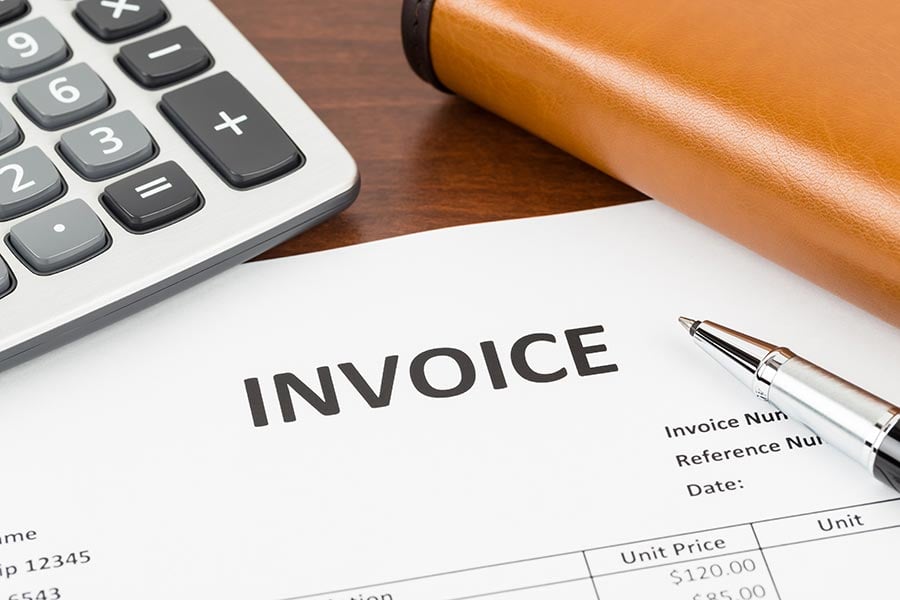What Does a Website Cost?


Most of the initial inquiries we get at Digital Momentum go something like this: “I’m looking for quotes on a website for my business. Can you send me information on what it will cost to have you guys re-do our site”?
There is some real consternation around the web design and development process, and most people jump right to the “what is this going to cost me?” question. While cost is a legitimate concern, focusing on this too early in the process can do more harm than good. Both to your state of mind and the success of your project.
Cost: Is that really what you want to know?
I think the reason that cost is such a concern for people is that they just are not familiar with the web design and development process. And, understandably, there is a level of discomfort in paying someone a significant amount of money when you’re not really sure what you’re paying them for. When considering hiring an agency to build a site, a myriad of questions begin to come to mind:
- What do I really get for my money?
- Do these guys understand my business?
- How can a website project seriously take 8 weeks (or more!) to complete?
- Am I going to like the end product that gets delivered?
- What if I don’t like it? Am I going to get ripped off?
- I’ve been burned by a web developer in the past. Am I going to get burned again?
- Are these guys even going to be around in a year to continue to service me?
These are all legitimate questions and concerns, which any reputable agency will be happy to answer to help you better understand the process. But rather than ask those questions specifically, often they all get bundled into the single question, “what does a website cost?”
My observation is that there is a perception in the marketplace that building a website isn’t that hard and, therefore, should NOT be that expensive. There are a few factors that I believe play into that mindset:
- The ubiquity of websites, in general. Most businesses have them, after all, so how hard can it be?
- There are a plethora of tools available that enable anyone who can use PowerPoint to build a site of their own
- Everyone knows someone (your brother’s-friend’s-sister’s-college-roommate) who claims they can build a site for them
I don’t think it’s too far of a leap to say that, on the whole, most people don’t trust web developers. Driven by a lack of familiarity with the development process, Which is a big part of the reason why cost gets discussed upfront. “What do I stand to lose if things go bad?”
Set Your Expectations
Perhaps the most important thing to do upfront is to make sure you set your expectations properly. While costs can definitely vary, we’ve outlined what we believe to be representative cost ranges for different types of website projects:
| DIY brochure site - Built using website builder products like Wix or Squarespace |
$300 - 400/year |
| Custom brochure site - Custom design, with tools that allow client to manage content |
$3,000 - $5,000/year |
| DIY WordPress site - Site is set up, built, and managed by the client - This does not include time from WordPress developer |
$120 - $1,000 /year |
| eCommerce site - Custom design, with tools to manage all content aspects of the site |
$10,000+/year |
Keep in mind that the biggest driver of cost is the set of specific features to be made available on the site. Having a clear picture of what you want the site to do for you is crucial. This brings us to our next point.
Help Me Help You
When you start to consider a web-based project, there are a number of things you can do to help yourself when you approach and engage an agency. Because costs vary based on the specific requirements of your project, the better you understand those requirements, the more accurate an agency can be in providing you with an estimate. Some questions to think about include:
- What do you want your website to do for you?
This is (obviously) a bit of a loaded question, but its importance can’t be understated. Ideally, you combine your knowledge of your business with an understanding of what drives the behavior of your target customers and narrow in on a specific website strategy (i.e., brand building, retail sales, lead generation, etc). For some help and ideas about what this can look like, check out our blog post "What is the Purpose of Your Website?” and "Setting Goals for Website Performance." - What is your budget?
If you realistically only have a budget of a few hundred dollars to build your site, the odds are low that you will find an agency that can build what you’re looking for at that price point. If your budget falls into this range, you will be better off leveraging a website builder product and creating the site on your own. Having a few thousand dollars to work with opens the door to conversations with agencies. It’s always a good idea to share with the agency what you expect to spend on the site. Creating this alignment upfront ensures you receive the most value for your money. - How do you want to manage your site after it’s live?
First, think about the kinds of updates or changes you will need after the site goes live. Will the site need functional or structural updates? Will you just be updating content (and not structural components)? Then, determine what level of control you’d like over those updates. Do you want an agency to completely handle the management - and any updates - to the site after it goes live? Or do you want control to be able to update the site whenever you want, without any involvement from the agency?
Getting Down to Brass Tacks
OK, so at this point, you probably get it. There’s no singular, silver-bullet answer to the question, “what does a website cost?” It very much depends on the specific requirements of the project. To make matters even worse, if you provide the same requirements to multiple agencies, you will almost certainly get cost estimates back that vary wildly.
How can this be? Well, in much the same way that a Porsche 911 and a Toyota Camry are both automobiles, one of them is going to cost more than the other. There are a number of factors that drive that difference, and the same is true for a website from two different agencies.
So, while the end product is, in fact, a website, when it comes down to it, these are the things that you are ultimately paying for:
- Functional expertise
Agencies have people on staff who are specialists in their respective disciplines. Depending on the requirements of your project, this will include experts on website strategy, graphic design, front-end (and back-end) development, account management, project management, etc. - Industry expertise
Here we are talking about companies that focus on and specialize in servicing a particular market or industry niche. There are many agencies out there that can service a broad range of clients. Then there are agencies who have focused their practice and optimized their offerings to focus on a specific segment. These specialist firms will speak the language of their clients and understand their needs and challenges better than the generalist firms. - Experience
This is an offshoot of both of the expertise items above, but it’s worth noting separately. An agency that has been in the business for many years has likely developed processes and best practices that help them execute jobs faster and more efficiently than less experienced firms. While years in business is not necessarily a predictor of this on their own, it is a good rule of thumb. - Infrastructure
While the finished product you get at the end of a project is a website, there is the infrastructure behind the agency that enables them to deliver on their promises. This infrastructure includes anything from office space (where they work) to support infrastructure (can you call someone if you have a question?) to the technical infrastructure where your website is hosted. - Time
Like any service-based business, when you boil it all down, most of what you’re paying for is the agency’s time. Or, more appropriately stated, you’re paying for the necessary chunks of time from each of the functional experts required to execute your project. The more complicated your project is, the more time is required to execute it. Which ultimately leads to a higher cost.
Conclusion
The question you are trying to answer here is not what does A website cost. You want to know what YOUR website will cost. The biggest driver of website costs is the specific requirements associated with the project. Do a little bit of homework up-front to document your requirements, outline an overall budget, and you will be well-equipped to have a meaningful conversation with one or more agencies about the investment your project requires.
